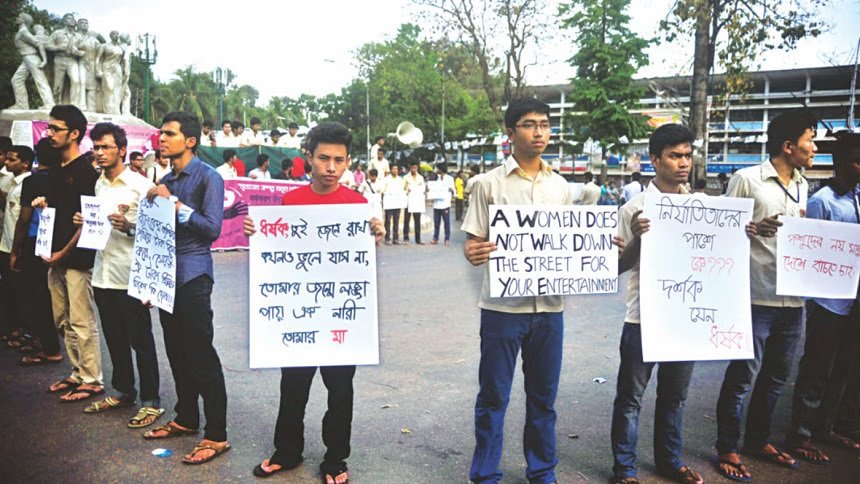Recent incidents have left me searching for answers, but perhaps only a woman can truly provide them.
When I walk to work, does a woman passing by wonder if I might be a threat? When I sit on a bus, does a woman hesitate before taking the seat next to me out of fear? At night, as I return home, does someone change their path upon seeing me? When a woman walks alone, does she glance at me from a distance and silently ask herself—Am I in danger?
This fear isn't just about muggers, thieves, or robbers. It goes much deeper. It is part of what we have created—a quiet, constant worry that shapes how women feel when they step out of their homes, making them always wary.
And my questions don't stop there.
Before leaving home, does a woman feel the need to reconsider her outfit, worrying that I—or someone like me—might judge her, make a comment, or even harass her?
Does she walk a little faster, fearing that I could harass her or ask an inappropriate question?
And so I ask, after the recent incidents, including the one at Dhaka University, does a woman now see me as a threat?
But before I try to answer these questions, let me make this clear—women live with fear every day.
The woman walking past you today, or the one you'll see tomorrow, might be feeling scared inside. And if you need proof, you don't have to ask a stranger. Ask the women in your own family. You'll get your answer.
I never thought I would be in a position where I have to assure women that I am not a threat. That they can walk past me without fear. That they can sit beside me without hesitation. That I will not judge their clothes or make them feel uneasy.
Yet, in our society, many have created an environment of fear for women. And that is simply unacceptable.
Recently, a female student at Dhaka University faced a situation that should alarm us all. She had no legal representation as she fought for justice.
Meanwhile, a group calling themselves "Tawhidi Janata" rushed into the police station, demanding that the accused be released. And it didn't stop there—they also threatened the female student. People who supported her on social media also faced harassment. There were vile comments, and doctored images of the woman were spread online.
The accused got bail. And in an interview, the student said she withdrew the case because she had received threats of murder and rape.
What message does this send out? It shows that when a woman speaks up, she might not only be ignored but also be punished for trying to seek justice—she is the one who ends up paying the price.
I want to recall another incident from a few years ago. It was in September 2022 when a police constable was temporarily suspended for harassing a woman over wearing teep. Back then, people from all walks of life protested. Even a member of parliament had raised the issue. But today? Have we forgotten how to protest?
I am not calling for punishment against anyone. I am only asking—have we stopped standing by women?
Supporting a woman isn't an act of kindness or charity. It is a stand against the culture of fear that we have allowed to grow.
The time for silence is over. We must take action—not tomorrow, not later, but now.
We have just marked—yes marked, because there is nothing to celebrate this year—the Women's Day of 2025. And this year, more than the others, the focus should perhaps have been on men. We, men, are the threat to women. It is, thus, our responsibility to create a society where a woman doesn't have to stop before stepping outside and ask herself, "Will I be safe?"








